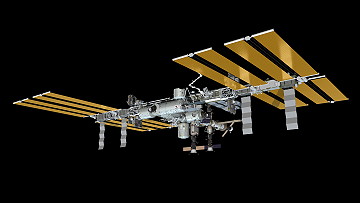Latest Developments on the International Space Station

Introduction
The International Space Station (ISS) continues to be a focal point for international collaboration in space exploration. Since its launch in 1998, the ISS has served as a microgravity laboratory contributing to scientific research and technology advancements. As nations collaborate on ambitious space missions, the ISS remains a critical platform for experiments that benefit life on Earth and beyond.
Recent Events
In the latest developments, NASA has announced its renewed partnership with private companies for cargo resupply missions to the ISS, with an emphasis on sustainability and innovation. SpaceX’s Dragon spacecraft recently completed its 25th cargo mission, delivering vital supplies and research instruments to the station. Alongside SpaceX, Northrop Grumman’s Cygnus spacecraft has also been actively participating in resupply missions.
Moreover, the ISS has hosted groundbreaking research in fields such as biomedical science, physics, and materials science. Recent experiments on muscle atrophy, conducted by the European Space Agency, are crucial for understanding how to counteract health issues faced by astronauts on long-duration missions, such as those planned for Mars.
Challenges and Future Prospects
Despite its successes, the ISS faces challenges, including aging infrastructure and geopolitical tensions that could impact international cooperation. NASA plans to continue support for the ISS until at least 2028, while discussions about transitioning to commercial platforms for low Earth orbit activities are ongoing.
Looking to the future, the ISS will play a pivotal role in preparing for deep space exploration. With upcoming missions targeting the Moon and Mars, the data and experiences gathered aboard the ISS will be invaluable in ensuring the safety and success of human missions beyond Earth’s orbit.
Conclusion
The International Space Station remains a testament to human ingenuity and the spirit of collaboration among nations. As it continues to foster international partnerships and provide vital insights for space exploration, the ISS remains an essential asset for scientific discovery and technological advancement in the quest to explore new frontiers in space.








